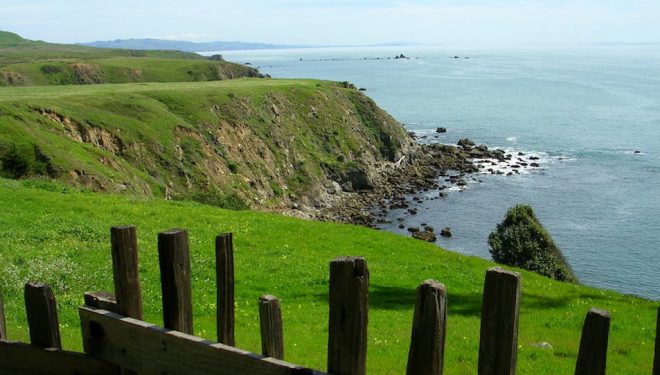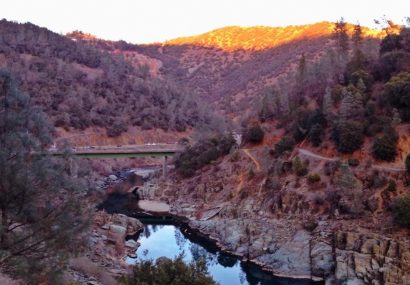
By Micheline Nadeau Fairbank and Derek Hoffman
The United States Department of the Interior, Bureau of Reclamation (Reclamation) recently announced $28.97 million to support planning and feasibility studies for 31 water recycling and desalination projects throughout the western United States, including projects in the States of California, Idaho, Nevada, New Mexico, Texas, and Utah.
Background
This latest investment, announced September 27, 2023, as part of the Reclamation’s WaterSMART Program, adds to the agency’s historic investments in water conservation, recycling and reuse projects throughout the western United States. This is part of the Biden-Harris administration’s Investing in America agenda, aimed to supplement existing freshwater supplies through 31 projects for planning, design and related activities to support the development of new construction projects that will be implemented under Desalination Construction, Title XVI Water Reclamation and Reuse, and Large Scale Water Recycling programs.
Water Reclamation and Reuse Program
Reclamation’s WaterSMART Water Recycling and Desalination program is part of the initiative to sustain America’s natural resources for tomorrow through stretching and securing water supplies to serve present and future generations. The Title XVI Water Reclamation and Reuse Program, authorized pursuant to P.L. 102-575 in 1992, provides assistance to water agencies for the planning, design and construction of water reclamation and reuse projects. The planning and development of these projects increases water management flexibility, the reliability of western water supplies, provides supplemental and new water resources to support irrigation and urban water supplies.
California Projects
This funding announcement includes 21 California projects. These include feasibility and other studies to support the use of recycled water for direct and indirect potable use by the Cities of Burbank, Cloverdale, Los Angeles, Oceanside, San Diego, Santa Monica, as well as the Inland Empire Utilities Agency, Metropolitan Water District of Southern California, Montecito Water District, Palmdale Water District, Rancho California Water District, San Bernardino Valley Municipal Water District, Santa Clara Valley Water District, Town of Windsor, Valley Sanitary District, and Western Municipal Water District.
Additionally, several of these water reuse and recycling projects are also aimed to stabilizing or offsetting impacts to groundwater supplies. Specifically, the Los Angeles Donald C. Tilman Water Reclamation Plant Advanced Water Purification Facility Project will not only provide up to 17,000 acre-feet annually of recycled water for indirect potable reuse, but aims to replenish the San Fernando Valley aquifer. The City of Santa Monica’s OneWater Project not only is exploring indirect and direct potable reuse, but is also addressing deteriorating groundwater quality due to of groundwater supplies. Another project focused on utilizing recycled water is the Inland Empire Utilities Agency’s Chino Basin Advanced Treated Recycled Water, Storage and Production project, which strives to produce approximately 15,000 acre-feet annually to recharge the Chino Basin and offset degradation to the groundwater supply. The Montecito Water District is preparing a Groundwater Augmentation program through the direct injection of recycled water.
Other projects funded support studies exploring expansion of desalination for the City of Oceanside in addition to expansion of the City’s water reuse and recycling options. County of San Luis Obispo is exploring desalination of brackish and saline water sources to develop new water supplies to offset projected long-term shortages. The City of Yuba City is studying the conversion of the existing wastewater treatment facility to a tertiary treatment facility allowing the distribution of recycled effluent in a cost-effective manner for outdoor and agricultural uses.
Idaho, Nevada and New Mexico Projects
The City of Boise, Idaho, received $1,000,000 to support the development of a feasibility study, planning, preliminary design and environmental compliance activities to support the City’s Recycled Water Program. The project seeks to support site selection and the development of a recycled water, groundwater recharge, and recycled water facilities and infrastructure. This project aims to develop 5,000,000 gallons per day to be recharged into groundwater supplies that not only addresses aquifer concerns, but support stability of water supplies for later use.
The Southern Nevada Water Authority received $1,000,000 to evaluate water reuse expansion options for the Boulder City wastewater facility, which may provide an additional 800 acre-feet of recycled water for direct or indirect reuse. The purpose of this project is to provide a mechanism for Boulder City, which cannot return treated effluent to Lake Mead for return flow credits, to augment the City’s Colorado River supply.
New Mexico was awarded $300,000 to conduct a feasibility study for the desalination of brackish groundwater from the Salt Basin and to evaluate brackish groundwater availability throughout southern New Mexico, particularly in the Lower Rio Grande area. This region of New Mexico experiences limited water supplies, which are influenced by growth, aridification, and regional water supply conflicts. The development of brackish groundwater will support a more resilient water supply for the region.
Texas Projects
Five projects were awarded in Texas including $1,000,000 each to the Canadian River Municipal Water Authority and El Paso Water Utilities Public Service Board, $250,000 to the City of San Marcos, $365,500 to the Gulf Coast Water Authority, and $490,000 to the Laguna Madre Water District. The Canadian River Municipal Water Authority is developing two feasibility studies relating to its Salinity Control Project in New Mexico and a proposed desalination facility near Lake Meredith to support enhanced drinking water supplies and meeting secondary drinking water standards, which are currently compromised due to chloride concentrations that exceed federal standards. The City of San Marcos is planning a feasibility study to explore potable and non-potable projects to support drought resiliency through potential expansion of the existing reclaimed water system and building on the City’s efforts to increase reliance on water reuse, reducing its reliance on groundwater and preservation of critical habitat in the San Marcos River.
The El Paso Water Utilities Public Service Board is performing a feasibility study intended to explore water reuse options to meet the growing demands and to balance groundwater use and wastewater risks impacting the Rio Grande River. The Gulf Coast Water Authority and Laguna Madre Water District are each evaluating the feasibility of sweater desalination projects in an effort to augment current water supplies and meet future demands and potential supply deficits.
Utah Projects
The City of South Jordan received $734,904 to complete planning for the development of a full-scale direct potable reuse project projected to produce up to 30 million gallons per day. The City has identified water reuse as an important component of securing its water supply in response to drought and climate change. Washington County Water Conservancy District received $1,325,638 to support planning for a Regional Reuse System, which is intended to incorporate recycled water into the water portfolio of the District allowing for 47,000 acre-feet of recycled water to be used for potable and secondary irrigation uses.
Conclusion and Implications
As the western United States continues to navigate the challenges associated with aridification and a changing climate, communities are exploring how to maximize available water supplies through water reuse, recycling and desalination of saline and seawater. Continued investments by the federal government through the Bureau of Reclamation’s WaterSMART program provides critical funding to offset the costs of these programs. Additional information on these and future grant funding opportunities can be found at the Bureau of Reclamation’s WaterSmart website at https://www.usbr.gov/watersmart/index.html.




